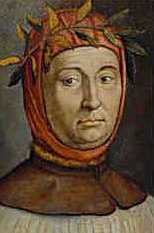Winter Waxing Wild Moon
I reproduce part of a David Brooks column here because it relates to the humanities thread I began a few posts ago. He seems to counterpoise the liberal education as defined by Harvard against the institutional life devoted to what I would call a vocation. This seems wrong-headed to me on a number of fronts, not least that the liberal arts education received its birth within the church and there is not much more institutional a creature than the church.
Vocation and its fit within an institution has been part of my life. Ministry qualifies as one of the oldest professions, vocations, that exists. Ordination confers upon you a responsibility to a particular institution, a responsibility defined by my Presbyterian vows to uphold the peace, unity and purity of the church. The role of clergy specifically demands nurture of the institution and the tradition which it serves. While in the Presbyterian church, I followed that vow with energy.
Brooks does not speak of the demand within any vocation and the institution they support: law, medicine, education, even journalism for the prophetic voice. This voice recognizes that traditions, in order to survive, must live and in living they must be constantly weighed in the crucible of every day practice. Sometimes they fall short; the rote learning of the nineteenth century has given way to learner centered education. The church’s ministry, previously open only to men now has women in equal to greater numbers. Gay and lesbian Christians want access to ordination, too. The struggle against them shows the powerful weight of inertia, when a tradition’s past conflicts with its present. The institutional conservative always has this inertial momentum on their side.
A challenge to the institution requires the liberal education Brooks describes; it requires the work of the individual, a creation in some respects of a pre-Renaissance thinker, Petrarch. Brooks may prefer the role of one who straps on the role and finds his life shaped and formed by it, but the creative work within them demands the essence of this education, exactly as Brooks describes it below:
“The aim of a liberal education is to unsettle presumptions, to defamiliarize the familiar, to reveal what is going on beneath and behind appearances, to disorient young people and to help them to find ways to reorient themselves.”
It is in fact this role of the humanities: their tendency to unsettle presumptions, to defamiliarize the familiar that will not allow them to disappear from the culture even if they disappear from the academy. Why? Because for all the valuable and humane work the various institutions in our lives do, they can also become the dead hand of the past suffocating the present. I stand with the individual, the individual unsettled and disoriented.
A few years ago, a faculty committee at Harvard produced a report on the purpose of education. “The aim of a liberal education” the report declared, “is to unsettle presumptions, to defamiliarize the familiar, to reveal what is going on beneath and behind appearances, to disorient young people and to help them to find ways to reorient themselves.”
The report implied an entire way of living. Individuals should learn to think for themselves. They should be skeptical of pre-existing arrangements. They should break free from the way they were raised, examine life from the outside and discover their own values.
This approach is deeply consistent with the individualism of modern culture, with its emphasis on personal inquiry, personal self-discovery and personal happiness.
After this intro Brooks goes on:
But there is another, older way of living…In this way of living, to borrow an old phrase, we are not defined by what we ask of life. We are defined by what life asks of us. As we go through life, we travel through institutions — first family and school, then the institutions of a profession or a craft.
New generations don’t invent institutional practices. These practices are passed down and evolve. So the institutionalist has a deep reverence for those who came before and built up the rules that he has temporarily taken delivery of. “In taking delivery,” Heclo writes, “institutionalists see themselves as debtors who owe something, not creditors to whom something is owed.” http://www.nytimes.com/2009/01/27/opinion/27brooks.html?_r=2&em

